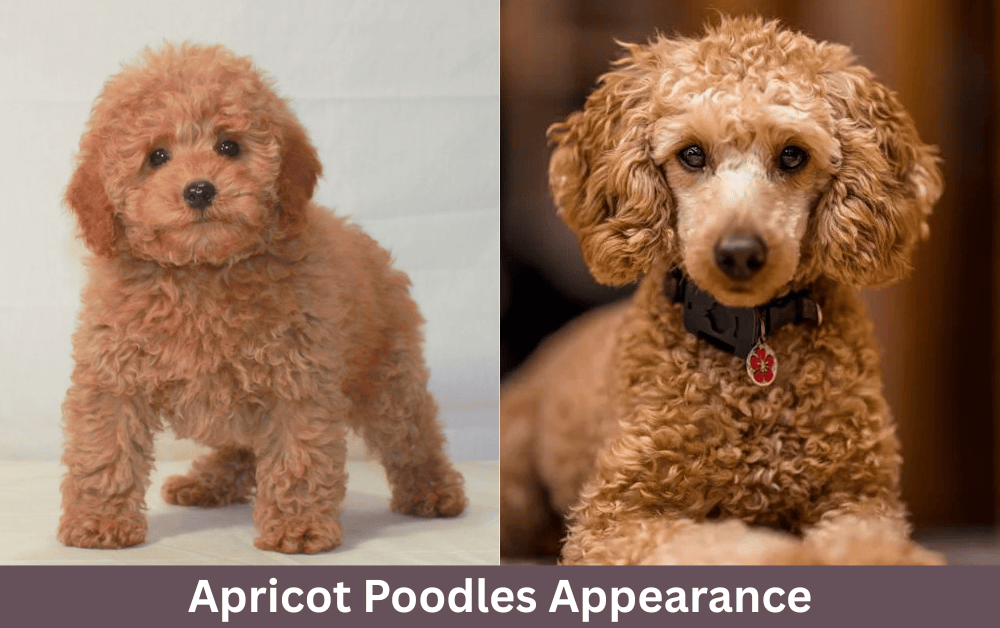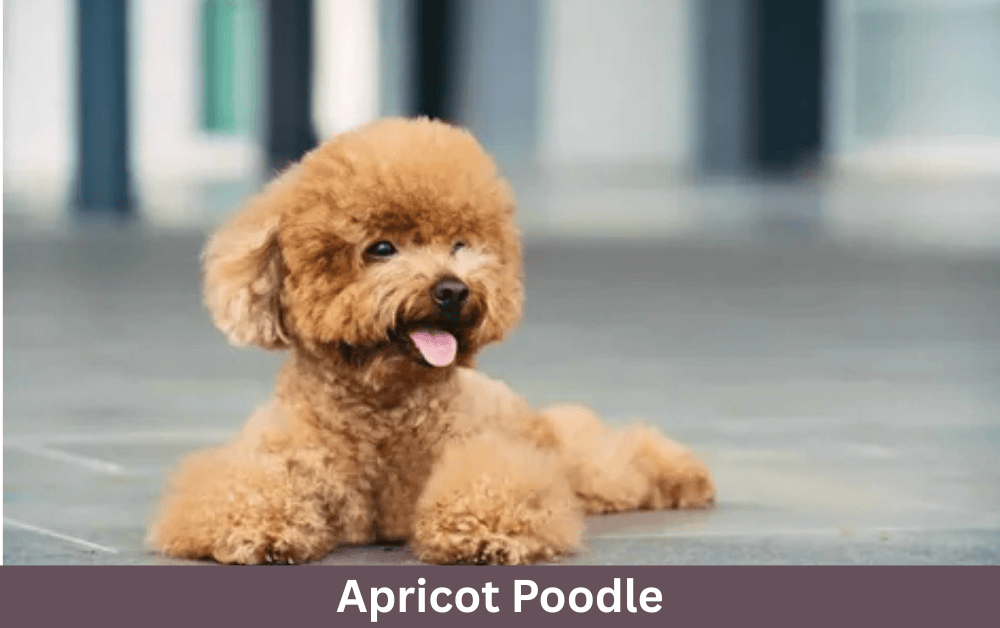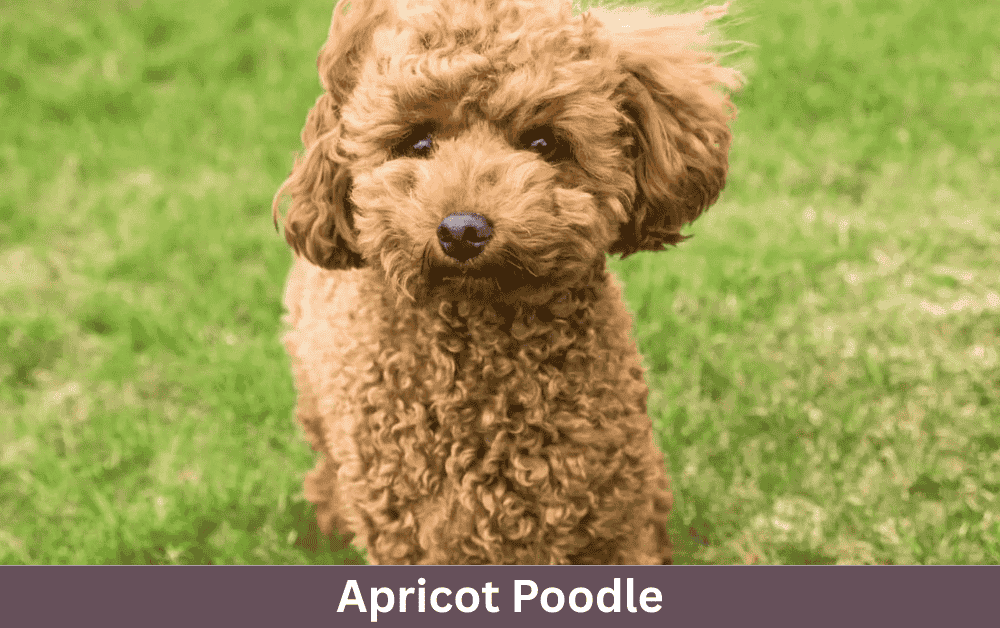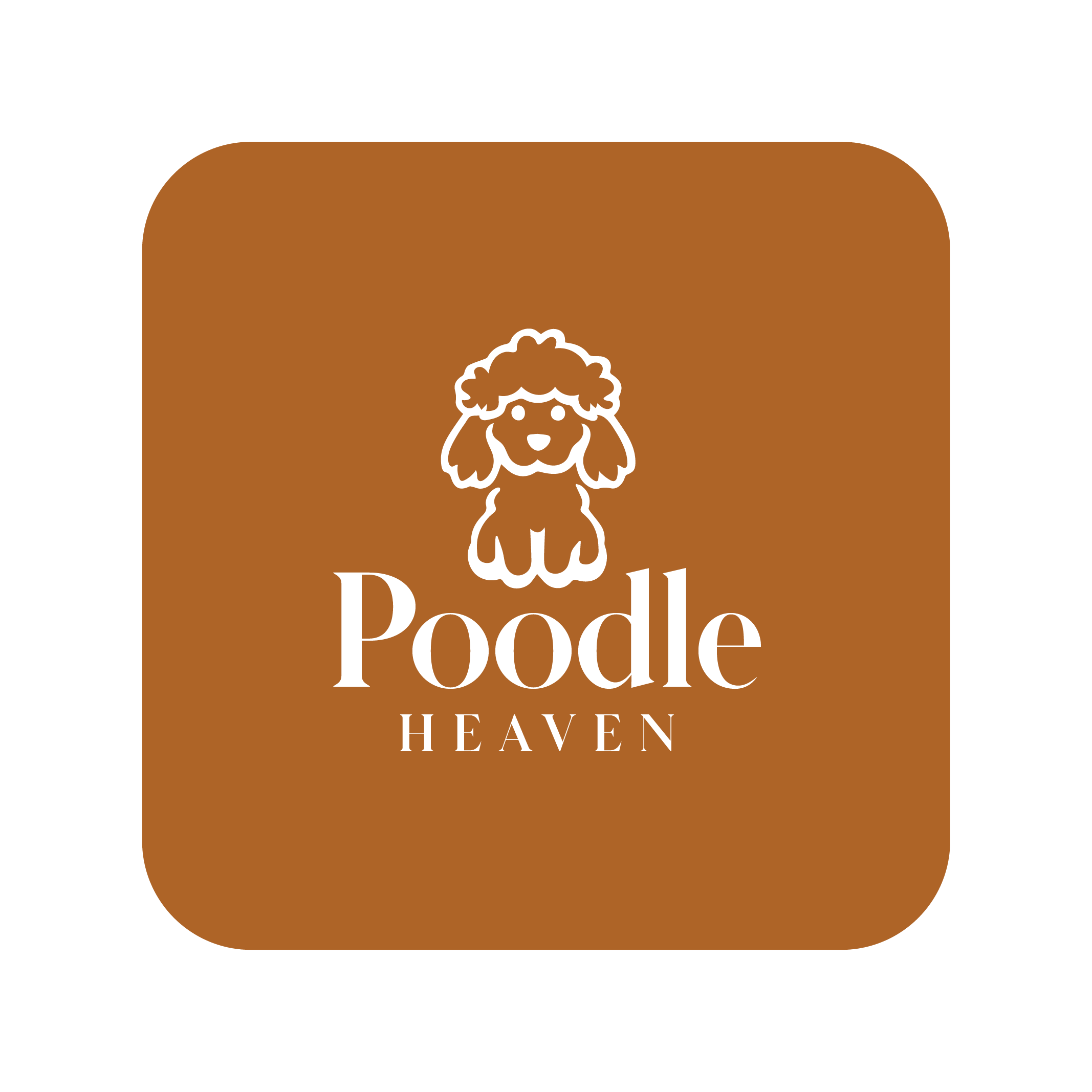What is an apricot Poodle?
Introduction
Apricot Poodles are a rare and stunning color variation of the beloved Poodle. Their coats glow with a warm, reddish-orange hue created by a unique recessive gene that limits dark pigment production. This gene makes their coloring rare, and their striking appearance often turns heads. Apricot Poodles are intelligent, loyal, and adaptable pets that fit seamlessly into families, apartments, and active households. Apricot poodles are rare, which means they’re harder to find than other Poodle colors. This guide dives deep into their history, care needs, health risks, and why they’re worth the effort for the right owner.
Quick Fact Table: Apricot Poodles
| Category | Details |
|---|---|
| Origin | First recorded apricot Poodle: Sowden Yellow Gall (1898, UK). |
| The apricot color was stabilized through selective breeding by the early 1900s. | |
| Coat Color & Genetics | Warm, reddish-orange hue caused by a recessive gene. |
| The coat may fade to cream due to sunlight, aging, or poor grooming. | |
| Nose and eye rims should ideally be black or dark brown. | |
| Size Variations | Standard: 18–24 inches, 40–70 lbs. |
| Miniature: 10–15 inches, 10–15 lbs. | |
| Toy: Under 10 inches, 4–6 lbs. | |
| Lifespan | 12–15 years with proper care. |
| Temperament | Intelligent, loyal, and highly adaptable. |
| Social and affectionate; thrives in family settings. | |
| They can be vocal (bark frequently) and may develop separation anxiety. | |
| Health Concerns | Hip dysplasia, sebaceous adenitis, Addison’s disease, gastrointestinal issues. |
| Regular vet check-ups and responsible breeding are crucial. | |
| Diet & Nutrition | High-quality dog food with 25-30% protein and 10-15% fats. |
| Include lean meats, fish, eggs, healthy grains, and essential fats. | |
| Avoid overfeeding to prevent obesity. | |
| Grooming Needs | Daily brushing to prevent mats and tangles. |
| Monthly baths with Poodle-specific shampoo. | |
| Regular ear cleaning, dental care, and professional grooming are recommended. | |
| Training Tips | Intelligent and eager to learn; excels in dog sports like agility. |
| Early socialization and positive reinforcement are key. | |
| High energy levels require consistent physical and mental stimulation. | |
| Cost | Standard: $1,500 to $3,000. |
| Miniature/Toy: $2,000 to $3,500+ (due to rarity). | |
| Rarity | This is rare due to the recessive gene required for the apricot color. |
| Hypoallergenic | Yes, they shed very little, making them suitable for allergy sufferers. |
History
Poodles have a long history dating back to the 15th century, where they were bred as water retrievers. Most Poodles were white, black, or parti-colored (multi-colored). The apricot shade emerged much later through careful breeding. The first recorded apricot Poodle was a Standard apricot poodle named Sowden Yellow Gall, which was born in 1898 in the UK. Breeders were fascinated by this warm, sunny color and worked to stabilize it. By 1912, the first apricot Miniature Poodle was born at the famous Whippendell Kennel.
Lifespan of an Apricot Poodle
Apricot Poodle Coat Color & Genetics

The apricot poodle’s coat ranges from a soft peachy tone to a deeper reddish-orange tone. This color is not permanent, which means that sunlight, aging, or poor grooming can fade it to cream. To protect their coat:
- Limit sun exposure during peak hours (10 AM–4 PM).
- Use dog-safe sunscreen on their nose and ears.
- Rinse their coat after swimming (chlorine or saltwater speeds fading).
Size Variations
Apricot Poodles come in three sizes:
- Standard Apricot Poodle: 18–24 inches tall, 40–70 pounds. Best for active families with space.
- Miniature Apricot Poodle: 10–15 inches, 10–15 pounds. Fits well in apartments.
- Toy Apricot Poodle: Under 10 inches, 4–6 pounds. Ideal for seniors or small homes.
All three sizes share the same curly, hypoallergenic coat and lively qualities.
Temperament of Apricot Poodles
Potential Challenges:
- Barking: They’re vocal and will alert you to strangers or noises. Training can reduce excessive barking.
- Separation anxiety: They hate being alone for long periods. Consider a dog walker or daycare if you work full-time.
- Sensitivity: Harsh training methods can stress them. Using positive reinforcement like treats, praise, and toys can help a lot.
Does an Apricot poodle bark a lot?
Health Issues in Apricot Poodles
Apricot Poodles look elegant, but they can have some health problems like other Poodles. These include genetic and inflammatory conditions that can affect their well-being. Responsible breeding and early medical attention are crucial to keeping your dog healthy.
Common Diseases:
- Hip Dysplasia: A hereditary condition caused by the dislocation of the thigh bone from the hip joint socket. It results in pain and movement loss that can worsen over time. Screening the parents can help avoid this condition.
- Sebaceous Adenitis: An inflammatory condition affecting the skin. It causes scaling, blistering, itching, and hair loss.
- Addison’s Disease: Triggered by adrenal gland malfunctioning and insufficient cortisol production, this is a serious condition with potentially fatal consequences if untreated.
- Gastrointestinal issues: Many Apricot Poodles struggle with stomach problems like vomiting and diarrhea.
Early identification of symptoms like blistering, infections, or scaling can prevent long-term complications. Always consult a vet for a thorough examination if you suspect your dog is suffering.
Diet and Nutrition
Providing a balanced diet is essential to keep your apricot miniature poodle healthy, active, and happy. Their meals should include high-quality proteins like lean meats, fish, and eggs to support muscle health and development. Including healthy grains such as oats and sweet potatoes ensures they get digestible carbohydrates for lasting energy throughout the day.
For extra poodle puppy care, adding essential fats like salmon oil and extra virgin olive oil can help maintain their coat, keeping it soft and shiny. Treats like low-lactose cheese or plain whole white yogurt can be offered in moderation for a little variety. By tailoring your apricot poodle’s nutrition with these wholesome ingredients, you can support your apricot poodle’s active lifestyle and ensure they thrive for years to come.
Key Points:
- Feed high-quality dog food with 25-30% protein and 10-15% fats.
- Avoid overfeeding to prevent obesity.
- Offer fresh fruits and vegetables as treats.
Grooming Tips for Apricot Poodle

From my experience, daily brushing keeps apricot poodles’ coats soft and prevents mats. Tangles and mats can form, which leads to painful hot spots or even severe skin infections if proper care is not provided. It’s best to brush apricot poodles every day and have them bathed with the best poodle shampoo about once a month to avoid these problems. Many owners rely on a professional groomer to achieve the best results and ensure their dog is comfortable during the process.
You can style your Poodle’s coat with a full show groom or opt for a more convenient haircut, such as the teddy bear cut. The teddy bear cut is particularly popular among owners of Miniature apricot Poodles. Your apricot Poodle will not only look amazing but also feel their best with proper grooming. Grooming your Poodle yourself or with a groomer is always worth the effort.
Here are important factors to consider while caring for your poodle’s grooming.
- Bathing
- Poodle Clips
- Poodle Shampoo
- Brushing
- Dental Care
- Ear cleaning
Training Tips for Apricot Poodle
Proper care and training help apricot Standard Poodles become gentle, obedient pets. Their love for participating in events and working alongside their owners makes them both engaging and loyal. Addressing behavioral problems through patience and structured training increases their excitement for learning and creates a balance between energy and focus. These lively dogs are a joy to train with dedication.
Key Tips:
- Begin training at 8-12 weeks old
- Use treats and praise for good behavior
- Provide 30-60 minutes of exercise daily
- Maintain a regular routine
- Socialize with people and other dogs often
How much does an apricot poodle cost?

An apricot Poodle usually comes with a higher price tag because of its rare color. For example, apricot Standard Poodles in this color may cost up to $2,000, and Miniature or Toy apricot Poodles could be as high as $3,000. Whether you’re drawn to their elegance or the uniqueness of their color, it’s worth considering the value these beautiful dogs bring to your life.
Where to buy apricot poodles
Picking a good breeder is super important when looking for an Apricot Poodle puppy. These puppies have a special golden coat that is rare and beautiful. This rare color makes them popular. Some breeders might cut corners or not care for the dogs properly because they’re in demand. That’s why it is important to take your time to find someone who truly loves and respects these dogs.
A great place to start is AKC’s breeder list. They connect you to breeders who check all the boxes—healthy dogs, happy temperaments, and kind treatment. A responsible breeder will happily answer your questions, show you where the puppies live, and even share health records with you.
Conclusion
Apricot Poodles make awesome pets, whether you’re single or have a big family. They come in all sizes, and their pretty apricot color makes them stand out. Their color has nothing to do with how sweet or friendly they are. These dogs are smart cookies, and they learn tricks fast and very well. They’re full of energy and are always available for playtime and cuddles. Start training early to stop bad habits, like barking too much or acting grumpy. Trust me, a little effort in the beginning can save headaches later.
Read Also: Blue Poodles
Read Also: Brindle Poodles
FAQs about apricot poodles
Are apricot Poodles rare?
Yes, apricot Poodles are considered rare. Their distinctive color is the result of a recessive gene, which makes them less common than other Poodle colors.
Do apricot Poodles change color as they age?
Yes, apricot Poodles may experience a lightening or fading of their coat color over time, a process known as “clearing.” This often occurs as they mature, with some coats becoming lighter or even transitioning to a cream shade.
Are apricot Poodles hypoallergenic?
Yes, Apricot poodles are hypoallergenic. Apricot Poodles shed very little, making them a great choice for people with allergies.
What sizes do apricot Poodles come in?
Apricot Poodles are available in all three recognized Poodle sizes: Standard, Miniature, and Toy. This variety allows potential owners to choose a size that best fits their lifestyle.
Do apricot Poodles have any specific health concerns?
Yes, Apricot Poodles may develop hip dysplasia, Addison’s disease, or sebaceous adenitis. Regular veterinary check-ups and responsible breeding practices are essential to ensure their health.
What are the differences between red and apricot poodles?
Apricots and red Poodles may look alike, but they have distinct differences. Apricot Poodles have a soft peachy-orange coat caused by a recessive gene. It means both parents must carry the gene for the color to appear. Their coats often fade to cream over time, especially with sun exposure.
On the other hand, Red Poodles have a deeper reddish-brown hue from a dominant gene. It means only one parent needs to pass it down. Red poodles hold their color better, but they may lighten as they age.
What are the differences between Brown and Apricot poodles?
Apricot and brown poodles differ mainly in color and genetics. Apricot is a light, peachy-orange shade that comes from a diluted red gene (recessive). Brown hair is deeper, resembling coffee or chocolate, and is caused by a separate gene (dominant). Brown poodles often have amber eyes and liver-colored noses, while apricots usually have black noses and dark eyes. Both may fade with age, but apricots lighten to cream, while browns might turn a lighter tan.

